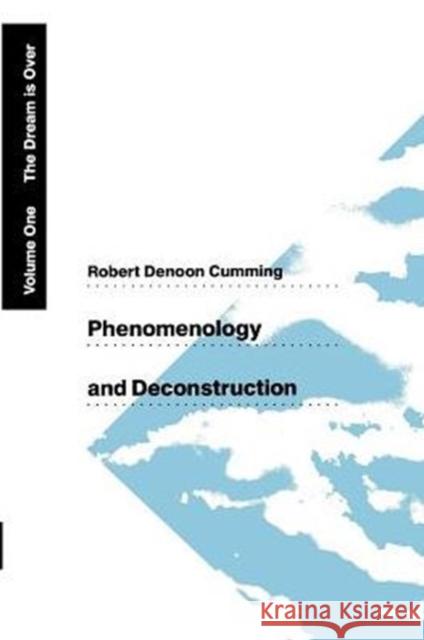Phenomenology and Deconstruction, Volume One: The Dream is Over » książka
Phenomenology and Deconstruction, Volume One: The Dream is Over
ISBN-13: 9780226123677 / Angielski / Miękka / 1992 / 263 str.
"Philosophy as . . . a rigorous science . . . the dream is over," Edward Husserl once declared. Heidegger (Husserl's successor), Derrida, and Rorty have propounded versions of "the end of philosophy." Cumming argues that what would count as philosophy's coming to an end can only be determined with some attention to disruptions which have previously punctuated the history of philosophy. He arrives at categories for interpreting what is at issue in such disruptions by analyzing Heidegger's and Husserl's break with each other, Heidegger's break with Sartre, and Merleau-Ponty's break with Sartre.
In this analysis Cumming deals with how a philosophy can be vulgarized (as Heidegger's was by Nazism but in Heidegger's own view by Sartre), with problems of periodization, with how the history of philosophy can be disinguished as a philosophical discipline from intellectual history. Cumming also elaborates an analogy between a philosophical method and style.











